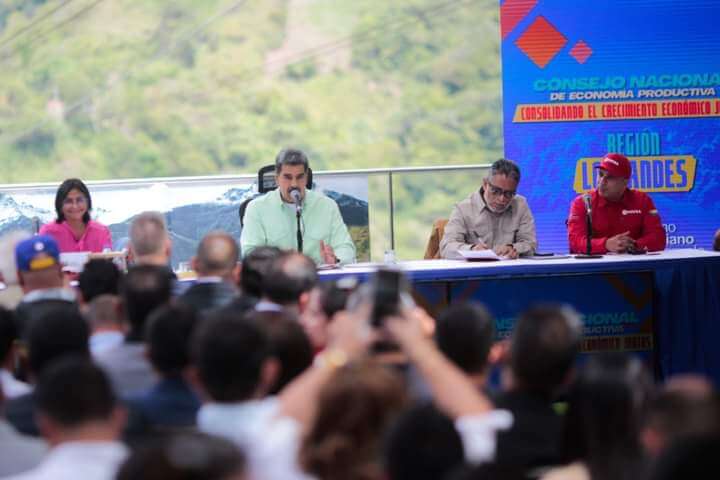Venezuela announces energy plan with China in midst of electoral campaign
Photo: Ministry of Foreign Affairs of Venezuela.
Venezuelan President Nicolás Maduro announced the creation of a new solar plant in the Venezuelan Andes, a region severely affected by power outages. During a meeting with the National Council of Productive Economy, which brought together the states of Mérida, Táchira, and Trujillo, Maduro detailed joint efforts with China, India, and Turkey to implement this initiative.
The plan includes generating 3,000 megawatts of solar power to strengthen the stability of the National Electric System. “The Venezuelan Andes is the most affected area by the electrical war and sanctions,” stated the president. Maduro also announced the installation of the first solar energy farm in the state of Mérida, which is set to use solar panels imported from China.
This announcement comes amid an electrical crisis in Venezuela, which has been a recurring issue since the massive nation-wide blackouts in March 2019, which left much of the country without electricity for five days and caused severe disruptions to essential services. Since then, there have been frequent protests due to constant power supply failures.
Maduro acknowledged the state’s inefficiency in managing these problems and emphasized the need to transform it into a more efficient and transparent entity. “We do not have an efficient state, which is why it must be dismantled and transformed into a transparent, efficient state, and that is the great task at this stage,” he said.
Maduro’s announcement comes on the eve of the upcoming presidential elections, scheduled for July 28. The context is marked by a lack of transparency in the electoral process, as opposition candidates like María Corina Machado have been unable to register, and the current government has refused to implement oversight mechanisms from international electoral observation bodies, as requested by G7 member countries on Friday, June 14.
As part of this plan, China will play a crucial role in providing the necessary technology for the installation of solar panels and the construction of solar energy parks in the Venezuelan Andes. The new project coincides with the celebration of the 50th anniversary of diplomatic relations between the two states. This relationship has been controversial in recent years due to Venezuela’s ongoing economic and political crisis.
China has provided significant support through loans, infrastructure investments, and energy agreements, which have been vital for Nicolás Maduro’s government in times of international isolation and economic sanctions. However, this relationship has also faced criticism due to Venezuela’s growing dependence on Chinese financing, leading some to question the sustainability and fairness of these agreements.
In recent months, Venezuela and China have strengthened their ties through a series of strategic agreements. These include a pact for the reciprocal promotion and protection of investments, the signing of a direct air services agreement, and collaborations in technological and environmental conservation areas. Additionally, a memorandum of understanding was established to promote innovation and scientific research in Venezuela. These agreements reflect an alliance aimed at diversifying the Venezuelan economy and increasing cooperation in various key areas.
The growing support from the Chinese government to Maduro’s regime can be seen as a crucial anchor on the international stage for the continuation of Maduro’s administration. If re-elected in the upcoming elections, as is anticipated, Maduro’s mandate would extend until 2031, completing 18 years in power and perpetuating the model inherited from his predecessor, Hugo Chávez.
Main source:
Venezuela anuncia plan eléctrico para Mérida con apoyo de países aliados | MPPRE (2024, junio 14).
Other related sources:
Maduro anunció un mega plan eléctrico para Mérida | Últimas Noticias (2024, junio 13).
Elecciones en Venezuela en 2024: lo que hay que saber | New York Times (2024, mayo 16).

